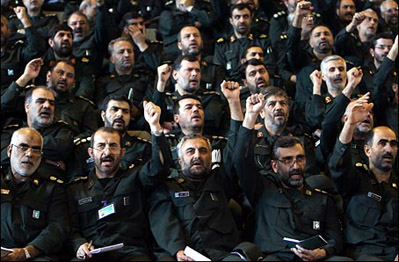From Haaretz, Egypt draws up plan to end internal Palestinian crisis
Egypt has drawn up a plan to end the internal Palestinian crisis and
will propose it to rival Palestinian factions, Fatah and Hamas, as soon as the sides agree to hear it sources said Saturday.
Egypt has come up with the plan after several rounds of bilateral talks with representatives from the different Palestinian factions. Later this month, Egyptian officials will meet with leaders from Hamas and Fatah separately to propose the plan and get their acceptance.
The Palestinian crisis escalated in June 2007 when Hamas routed security forces loyal to President Mahmoud Abbas, ousted his Fatah movement and took over control of the Gaza Strip, effectively separating it from the West Bank where Abbas has consolidated his rule.
Egypt’s problem:
Its government needs to appear to be working in good faith to resolve difficult aspects of the Palestinian situation. It cannot be seen as being in conflict with the Palestinians, which makes situations like this a major problem.
On 22 January 2008, after Israel imposed a total closure on all exits and entrances to the Gaza Strip, a group of Hamas demonstrators, many of whom were women, attempted to force open the door of the Rafah crossing from Gaza into Egypt. They were beaten back by Egyptian police and gunfire erupted. That same night, Hamas militants set off 15 explosive charges demolishing a 200-metre length of the metal border wall that had been erected by Israel in 2004. After the resulting Breach of the Gaza-Egypt border, many thousands of Palestinians, with estimates ranging from 60,000 to 350,000 flowed into Egypt to buy goods. Palestinians were seen purchasing food, fuel, cigarettes, shoes, furniture, car parts, generators, and even weapons.
Egypt has prospered from its peace agreement with Israel, in terms of trade, tourism, and the regard of the world. Palestinian conflicts destabilize that agreement. Egypt’s people, of course, are mainly sympathetic with the Palestinians. That makes it tough to take strong enforcement action against Palestinians trying to breach the Gaza/Egypt border. If Palestine can be somewhat stabilized, the chances of that kind of conflict are reduced. Egypt’s battle with its own homegrown terrorists, the Muslim Brotherhood (the seedbed for Al Qaeda and others), makes it especially necessary for the government not to be seen as being in conflict with the Islamic side of any dispute.
Unlike some decades ago, the governments of Jordan and Egypt are both willing to be part of a two-state solution, if they don’t have to offend their own people’s sympathies to get it. They understand, correctly, that it is to their financial and political benefit to do so.
It’s tempting to paint all Islamic mid-east nations with the same brush. But the fact is that there would be considerable hope for peace if Syria and Iran dropped their support of Hamas and Hizbullah, and the Palestinians could see their way clear to elect a leadership that was not dedicated to maintaining the conflict.
Put simply, Iran’s and Syria’s leadership depend on maintaining that conflict for their own power. And Russia is helping them do it, and helping the governments of Iran and Syria stay in power. The odds of Iran/Syria/Russia abandoning Hizbullah and Hamas are miniscule. But if there was some way to do an end-run around Hamas in Palestine, in terms of forming a government, it would be a start. I have no illusions about Hamas peacefully allowing this to happen. But, just possibly, if Hamas is seen by the Palestinians as being against a greater Palestine government, and if Hamas starts being known more for attacking other Palestinians than Israelis, something like the Anbar awakening could occur, where the locals once sympathetic to terrorists realize the danger they pose.
Egypt, hardly an ideal of freedom, is nevertheless doing the right thing here, and should be supported by the west in whatever ways will help. In the meantime, the west has to find a way to get aid into Palestine that does not flow through Hamas first, so that the west does not support the Palestinian image of Hamas as caregiver. I don’t have a suggestion about HOW to do this, and I recognize the difficulty of it. Nevertheless, we have to find a way to get aid to Palestinians that does not simply prop up Hamas. Just possibly, the beginning could be Egypt’s intervention to help develop a non-Hamas AND non-Fatah Palestinian unified government, through which aid from the west could be funneled that would help stabilize that new government.
The two state solution cannot work if one of them is simply a terrorist nation. But if, by some working of God and diplomacy, a non-terrorist Palestinian government could form, there would be hope. It’s worth the effort.
Tags: Egypt, Gaza, Iran, Israel, Palestine















